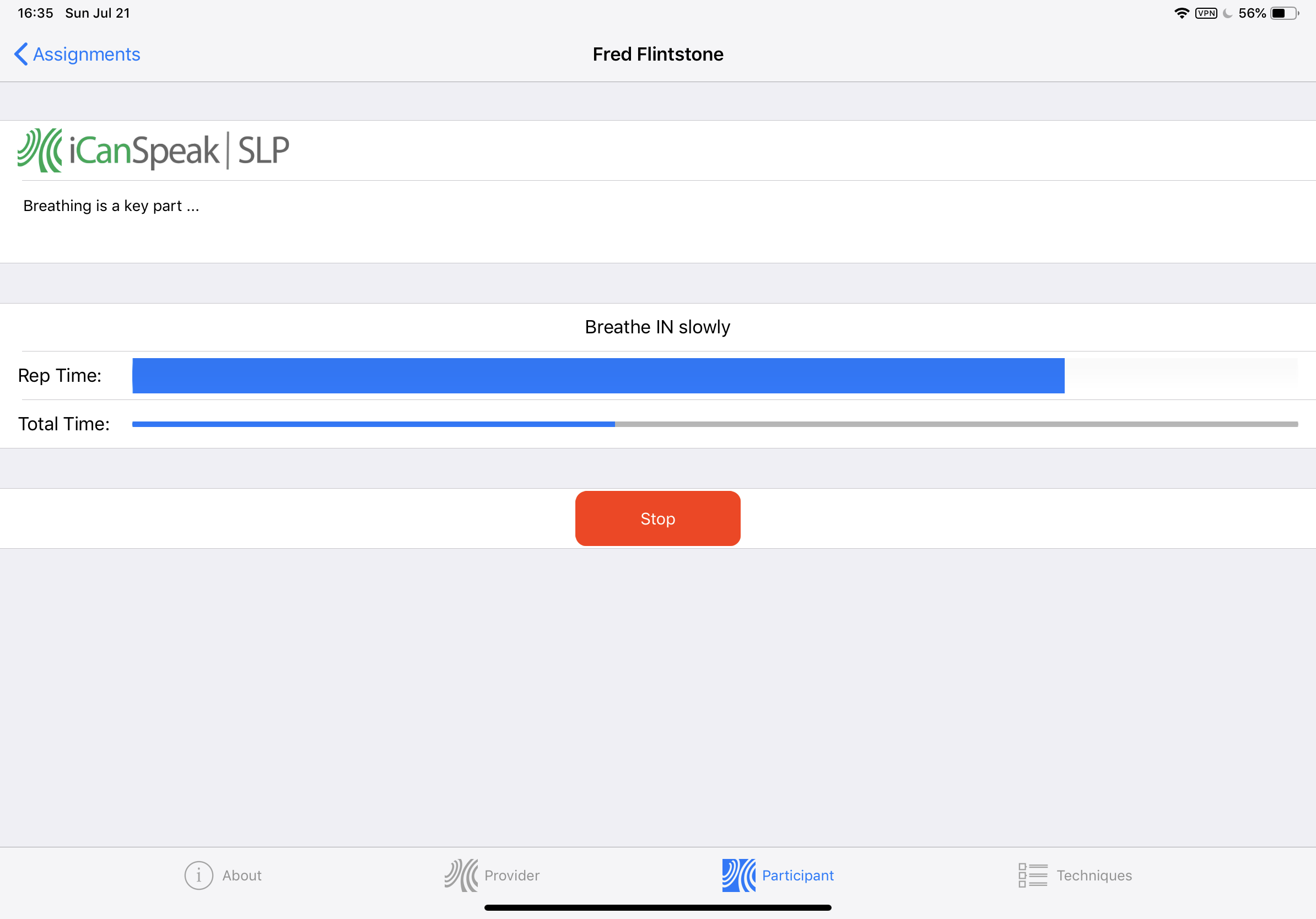Introduction
Breathing is an essential component of speech, as all speech sounds are vibrations that occur in air. The speech system stores air, pushes air through the vocal apparatus, and gives this stream of air patterns of vibrations, which we interpret as individual speech sounds. In order for these sounds to be properly produced, a constant stream of air is required.
Physiology
To initiate and sustain an air stream that can be used for speech, the following components must be used:
The lungs, which provide storage for the air
Muscles in the chest and abdomen, which drive air up through the windpipe
The larynx, where the vocal folds are located, which vibrate with the air stream to produce speech sounds
The vocal tract, which includes the tongue, soft palate, jaw and lips, are used to shape the vocal tract for different sounds
Interventions
Breathing is one of the first interventions that is used as part of a session to establish air flow. The length of the breathing segments, and how may should be used.
Assignments
The SLP can create breathing assignments for a participant. When the participant carries out the assignment they will be guided for the amount of time in each segment, as well as the overall timing for the assignment.
The breathing exercise in iCanSpeak is designed to practice slow, deep, and full breaths, which are essential for fluent speech. The user can set the duration of their breaths (ex: 3 seconds in, hold for 3 seconds, 3 seconds out), and the number of times they would like to repeat this exercise.



